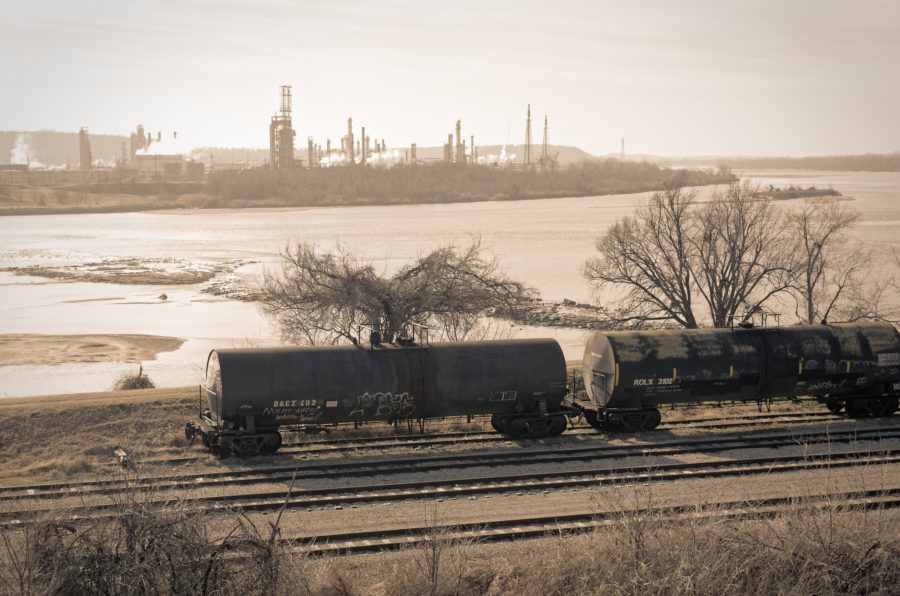The deeply controversial Dakota Access Pipeline, also known as DAPL, got another boost last week after lawmakers claimed that the Secretary of the Army had ordered the Army Corps of Engineers to “proceed with the easement needed to complete [it].”
By boosting DAPL’s prospects, the Trump administration may have doomed Vancouver Energy.
The 470,000 barrel per day pipeline, which would connect North Dakota oil fields with Midwestern oil hubs, isn’t yet a done deal. The Corps has not yet granted the pipeline’s final easement, and at least one of the project’s financial backers has threatened to pull out of the project if an “acceptable non-violent solution” doesn’t emerge. However, the new administration’s vocal support for new pipelines has probably boosted the likelihood that some version of DAPL will eventually come into service.
Curiously, though, finishing DAPL might be bad news for some parts of the US oil industry. As I mentioned last week, one of the big winners in the short term would likely be the Canadian tar sands industry—which is not only one of the most polluting sources of oil on the planet, but also a direct competitor to US oil producers.
At the same time, one of the biggest losers from the administration’s pipeline-approval frenzy could be the proposed Vancouver Energy oil-by-rail facility in Vancouver, Washington.
If completed as proposed, the Vancouver Energy facility, backed by oil refining conglomerate Tesoro and logistics firm Savage Services, could handle up to 360,000 barrels of oil per day—more than double the amount that the entire state of Washington now receives by rail. Time and again, Vancouver Energy boasted that it would bring “lower-carbon fuels” to the West Coast—clearly indicating that the facility would rely on “light, sweet” crude oil from the Bakken region of North Dakota to supplement the sludgier, more carbon-intensive oils that the state currently receives from Alaska and Canada. Oil industry analysts agreed that Tesoro Savage would most likely source much of its oil from the Bakken.
But Bakken oil production has faltered since the Vancouver Energy facility was first proposed in 2013. The collapse in global oil prices that started in mid-2014 forced steep production cutbacks in the Bakken region: the US Energy Information Administration estimates that the Bakken will produce a little less than 1 million barrels of oil per day this month, down from 1.24 million barrels of oil per day at the December 2014 peak. But even as Bakken production collapsed, new pipelines and refineries came into service in the region, providing a more cost effective alternative to shipping oil by rail.
The combination of falling production and cheaper transportation options squeezed the Bakken’s oil-by-rail industry: by last November, total oil-by-rail shipments from the Upper Midwest had fallen by more than two-thirds from their peak two years earlier. Today, Vancouver Energy would struggle to find enough barrels of Bakken oil to justify the project.
DAPL would just make that problem even worse. Most of the remaining Bakken oil-by-rail shipments come from regions with limited access to pipelines—but those are precisely the regions that DAPL would serve. So a completed DAPL would shift most of the Bakken’s remaining oil-by-rail shipments over to pipelines—leaving precious little oil for projects like Vancouver Energy. Which means that, by boosting DAPL’s prospects, the Trump administration may have doomed Vancouver Energy, all but guaranteeing that the oil terminal would stand as a superfluous “stranded asset” and a waste of both money and port space.
It’s one of many ironies in the Administration’s surprisingly incoherent energy policy: by “helping” the fossil fuel industry, the Trump administration could be simultaneously undermining the finances of major US oil companies and bolstering the Northwest’s burgeoning resistance to fossil fuel exports.


Comments are closed.